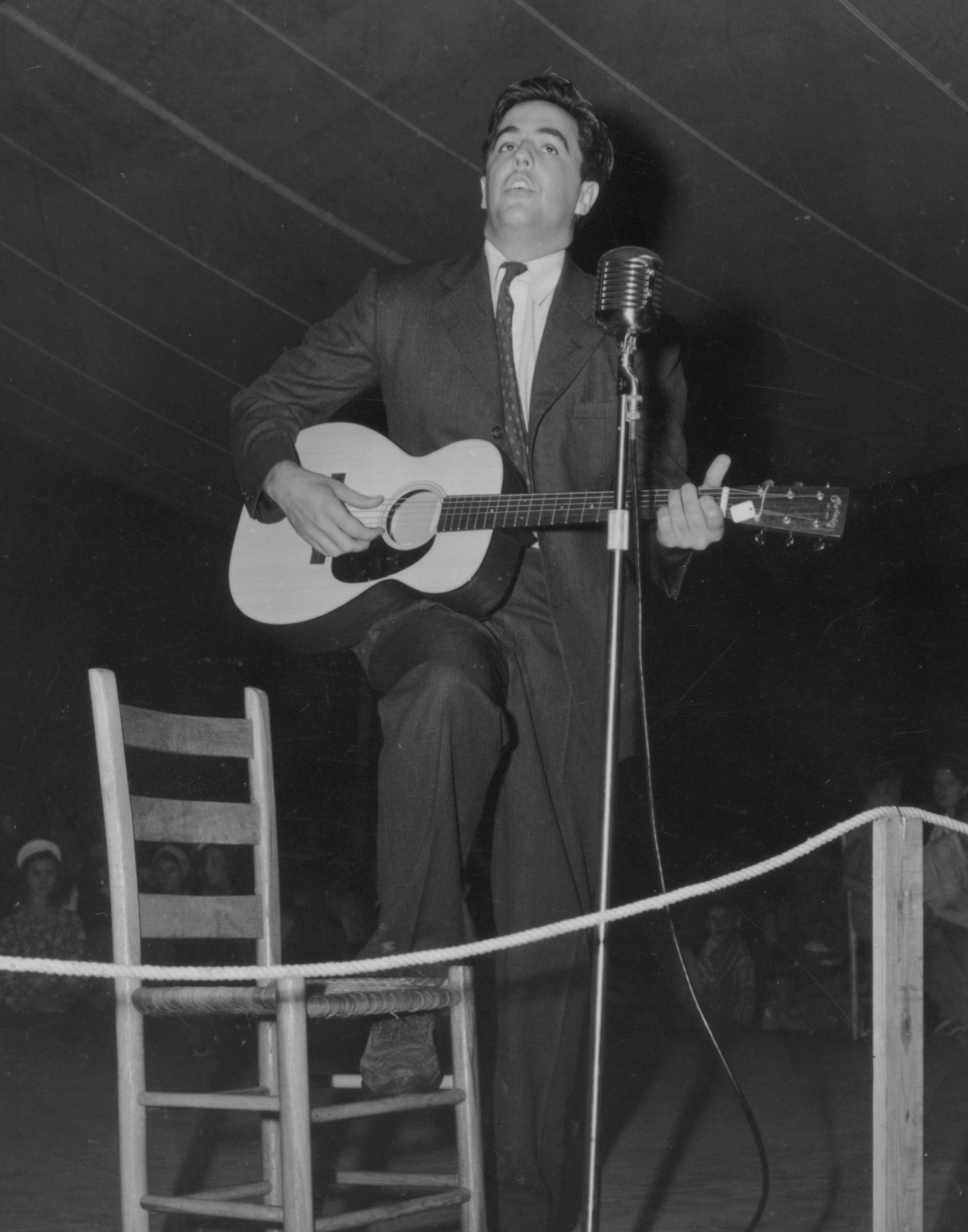Category: Bloggernacle+
-
Missions, 15 Years Later
Today is the 15th anniversary of the end of my mission. (Note that I can’t entirely remember what I mean by that—I’m pretty sure that August 5, 1997, was my last day of proselytizing, the 6th I got on an airplane, and the 7th I arrived home. But it has been 15 years, and I’m…
-

Dam Comments
Too much attention to those awkward stones just adds to them and makes a dam, and I seriously don’t want to have to bring out the dynamite and blow it away.
-
Urban Mormonism
As the sacrament was passed in the rural ward we attended today, my younger daughter looked at the deacons passing the sacrament and asked, “Why are those kids doing that?”[fn1] (My wife tells me that my older daughter noticed the same thing.) — [fn1] Just in case it’s not clear what my daughters are talking…
-
Mother’s Day, 1996
I sit, waiting for the phone to ring. I haven’t spoken to my parents since December and, though I love what I’m doing, I love them, too. But I’ve been sitting here for almost an hour. I’m not 100% sure of the time zone difference between eastern Brazil and the western United States, but I’m…
-
Adventures in Family History, part 2
One Sunday evening, several months ago, I was playing around on FamilySearch, clicking back through my father, his father, his mother (or something like that), etc. After twists and turns—twists and turns I recorded so that I could get back there again—I discovered that I have ancestors from Jersey.[fn1] No, not that Jersey, the one famous…
-

Taxing(?) City Creek Reserve, Inc.
The other day, Nate responded to many of Jana Riess’s criticisms of the City Creek mall in Salt Lake. As I read her piece, one sentence jumped out at me.
-

Just Say No?
We have had horrible luck while traveling with finding church services through Mormon.org. On one trip, the address it gave didn’t exist. (How do I know? After nearly an hour of looking, asking people in the shops nearby, meeting up with friends who were also looking, well, we never found it.) On another, church started…
-

-
![The Bott Gaffe: A Chronology [Updated 6Mar12 9:45p]](https://timesandseasons.org/wp-content/uploads/2012/03/randybott.jpg)
The Bott Gaffe: A Chronology [Updated 6Mar12 9:45p]
Since Wednesday, when I read the Washington Post article that cited BYU Professor Randy Bott, I have been surprised at two elements of the news and commentary I’ve read about it. First, I’ve been pleasantly surprised at the unanimity of the response—no one that I’ve seen has tried to defend the ideas that Bott expressed.…
-
My Cri de Coeur to Randy Bott [Updated][Update 2]
[Update 2:] The Church has responded, both with respect to Dr. Bott’s statement and with a statement on the Church and race. I’m adding the text of each to the bottom of the post, but I want to highlight these two excerpts: We condemn racism, including any and all past racism by individuals both inside…
-

Romance, MTC Edition
Tomorrow morning, a bunch of Provoans (and presumably others) will wake up with a brand new ring on their left ring fingers. To all of you: congratulations and good luck! This, though, isn’t your story.
-
Misappropriation of email? or who owns an email list anyway?
Last Friday McKay Coppins, in an article titled Mitt’s Mormon Army: How It Works, looked at how grassroots Mormon support for Mitt Romney has managed to organize, despite the Church’s statements that its resources should not be used for election campaigns. Coppins points out, as most LDS Church members already know, that not everyone respects…
-

Alan Lomax and All the Good
Today, were he still alive, Alan Lomax would have celebrated his 97th birthday. I confess that I wasn’t familiar with Lomax until after I got married. The long and the short of it: Alan Lomax was a folklorist and an ethnomusicologist.
-

Mitt Romney’s Tithing Problem (?)
ABC broke the news: Mitt Romney has donated millions of dollars worth of stock to the Mormon church. SEC filings disclose that a Bain partner donated $1.9 million of Burger King stock to the Church; in addition, the Church has received stock of other Bain holdings, including Domino’s, DDi, Innophos, and the parent company of…
-
Harold Bloom, the Byrds, and Me
About a week ago, James posted a reflection on Harold Bloom’s (frankly awful) New York Times op-ed. Rather than directly responding, though (other than expressing his rightful disappointment), James engaged with Dr. Bloom’s allegation that Mormonism and Protestantism are converging. Though concerned about such a convergence, James ultimately (and rightly, I believe) doesn’t think we’re…
-
Things for Which I’m Thankful
1. My family. I haven’t said much about them on this blog, and will continue not to say much about them here, but I’m certainly thankful for them. 2. Social networks. And I mean this on all sorts of levels. Facebook has brought me back in touch with friends from high school with whom I…
-
14.1 Million
In the comments to Dave’s post discussing Joanna Brooks’s discussion of myths about Mormonism, the conversation is getting hung up on whether her citation of 14.1 million members is disingenuous[fn1] or not. That discussion, I believe, misses the point.[fn2] Why? Baseline. First, because 14.1 million is as good a number as any. Sure, in a…
-

Blogging on the Road to Damascus
Transcripts of the recent General Conference have been posted at LDS.org, including President Uchtdorf’s talk “Waiting on the Road to Damascus.” The talk was mostly a word of encouragement to those members of the Church who, for various reasons including self-doubt, are not full participants in their local wards. The focus of the talk was…
-
The hidden apologetics of Banner of Heaven
Scott at Bloggernacle Times has been putting on a very impressive Behind the Music retrospective about the old Banner of Heaven blog. The hair, the women, the trashed hotel rooms — it’s all there, complete with interviews with band members (Brian G. comes clean about the infamous “no brown M&M’s” contract), groupies band aids, and…
-
New Mormon Blog at Beliefnet
Jana Reiss, former T&S guest blogger and author of Mormonism for Dummies, is running a new Mormon blog at Beliefnet: Flunking Sainthood. Put a link in your blogroll (do people still do blogrolls?) and visit often. Having myself previously hosted a Mormon blog at Beliefnet, I have some idea of the challenge the new blog…
-

Testimonies of the Bloggernacle
A friend asked whether I was aware of any good collections of testimony or “Why I Believe”-type posts in the Bloggernacle. Nothing really sprung to mind, so I thought I’d issue a call for people to share their favorites here. I’ll compile a running bullet-point list below of the suggestions.
-
Mission Websites — Mission.net or what?
Its been 25 years since I returned from my mission, and this past week I got an email from a friend asking me to join a new website for my mission. The first thing I asked myself, before joining, is ‘why do we need another mission site?
-
Anonymity as Virtue or Vice
Online anonymity is a topic that comes up regularly. Does if facilitate public discussion of controversial issues or just allow anonymous commenters to spread rumor and innuendo with no accountability? Does real-name posting or commenting improve quality via reputation effects or lead to self-censoring? These are valid questions for all online forums, not just blogs…
-
A Mormon Advice Columnist?
Could there ever be a Mormon advice columnist, dispensing advice to a Mormon audience? Or is that what Bishops are for?
-
Going Social and Open Source
The LDS Church’s Chief Information Officer, Joel Dehlin, called for help Wednesday in a post titled Mormon Open Source Open for Business. The project seeks help with a number of LDS Church projects, including, first on the list, a rewrite of the software that runs the Stake and Ward Websites.
-
Compassion for the Unworthy
Can I remind us of something? The rhetoric here and elsewhere on the bloggernacle, the Internet, and evidently in the personal lives of some of us, seems all too often to be based on the idea that there is a worthiness test for compassion.
-
To Tweet or Not to Tweet
When I first heard about Twitter, I thought it was one of those truly dumb ideas that couldn’t possibly catch on. Now it is an infotsunami, sweeping over the world in a growing horde of 140-character snippets [see “People Are Flocking to Twitter” at LDS Media Talk for a quick update]. So do you join…
